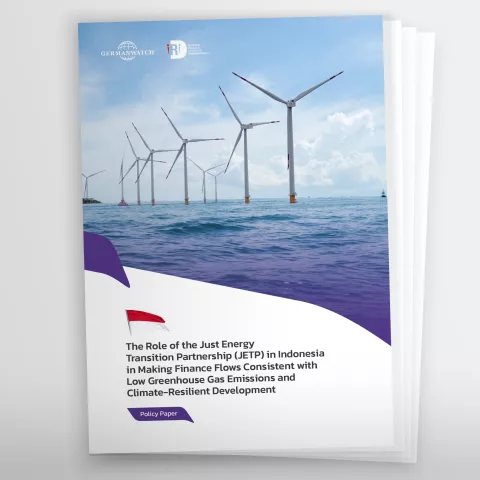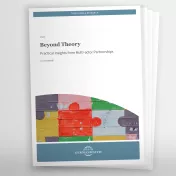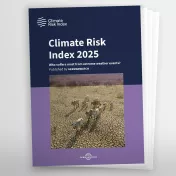
As countries transition to low-carbon and climate-resilient economies, finance flows will need to shift to support these transitions, in line with the third long-term goal of the Paris Agreement, Article 2.1c. The transition's success will also depend on it considering justice elements, to avoid any potential negative socioeconomic impacts in developing countries.
Indonesia is one of the first countries to have already signed a Just Energy Transition Partnership (JETP). In this context, Indonesia developed a Comprehensive Investment and Policies Plan (CIPP), laying out a series of policies and regulations that would drive action in the Indonesian energy sector towards a series of agreed transition goals. This paper offers an analysis of these policies and regulations, using existing Article 2.1c approaches, as well as an analysis of the ability of these approaches to integrate justice considerations, and an analysis of the finance provided under the JETP in the context of a just transition.





